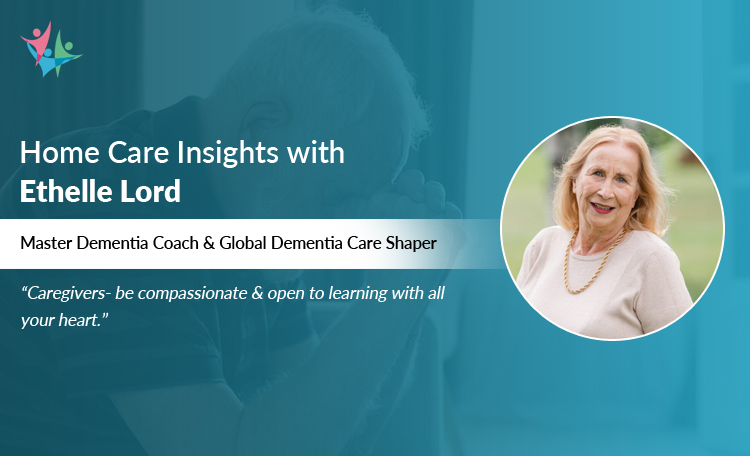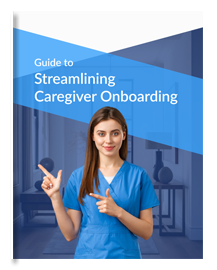In Conversation with Dr. Ethelle Lord to Bring Her Insights on Assisting Dementia Elderly
Suppose you’re caring for someone with Alzheimer’s disease or related dementia. In that case, the role of managing daily tasks will rise with the progression of the disease.
Dementia causes symptoms that affect seniors’ ability to function independently in their daily lives. Due to dementia, extra care is needed to support seniors, especially if they age in place.
While occasional forgetfulness is a normal part of aging, severe memory loss isn’t. Additionally, dementia causes a loss in several cognitive functions, such as problem-solving, memory, thinking, and language necessary for executing tasks in daily life, making the senior severely impaired.
Dementia caregivers and supporters step into caregiving roles to assist seniors with Activities of Daily Living (ADLs) and companionship, making their role the need of the hour.
To shed some light on the same, we interviewed a home care industry expert to bring her perspective on providing older dementia adults with exceptional care.

Dr. Ethelle Lord is a master dementia coach and founding president of the International Caregivers Association, global dementia care shaper & creator of the Care Provider Partnership Agreement Program (CPPAP). She is a pioneer in the containment of dementia, has trained dementia coaches, author and presenter, and mentor.
Her Alzheimer’s primer, “How in the World… Now What Do I Do?” contains essential information on Alzheimer’s. Lord is a visionary in the field of dementia management and care.
Let’s get started with knowing what our expert thinks of the home care industry:
Question 1: What, in your opinion, can caregivers do to support seniors with dementia?
The first step to help and support seniors with dementia is to learn how to speak about Alzheimer’s. Some other things that can help older adults are:
- Keep a routine, such as dressing, bathing, and eating each day simultaneously.Assist the elderly in writing to-do lists, events, and appointments in a calendar or a notebook.
- Plan activities the person enjoys the most and try to do them simultaneously each time.
- Be gentle as well as respectful. Let the person know what you’re going to do, step by step while helping them bathe or dress up.
- Be gentle as well as respectful. Let the person do what you’re going to do, step by step while helping them bathe or dress up.
- Music is extremely important as an activity.
Making health care decisions for someone unable to do things can be overwhelming. Make sure to learn about your loved one’s condition and be flexible in staying one step ahead of behavior changes.
Question 2: Do dementia patients need to make specific lifestyle changes to minimize the impact?
It is highly predictable that lifestyle changes must occur. Beginning with nutrition, supplements, and other healthy food choices can make them live better, longer, and more comfortable.
It is also advisable for dementia patients to eliminate alcohol and smoking.
Question 3: How should family members and caregivers communicate with dementia patients?
By learning the simple three guidelines of how to speak Alzheimer’s:
- Don’t ask questions.
- Learn from them as the experts on their condition.
- Always agree with everything they say. Never interrupt them.
Question 4: Do caregivers and family members need to take specific steps to make the elderly’s house dementia friendly?
Many families are hesitant to make specific changes to accommodate loved ones who are living with dementia. However, it is vital to make the house elderly-friendly by conducting in-home safety assessments. Some ways to make a home safe for seniors are:
- Declutter pathways
- Remove rugs and other tripping hazards
- Make bathroom handicap accessible
- Check the kitchen for hazards
- Improve lighting
- Purchase safety devices
- Remove mirrors
- Install dead-end bolts on outside doors
These minor modifications in the elderly’s house can go a long way in keeping the elderly safe, helping families attain a sigh of relief, and provide the comfort of home.
Question 5: What advice do you give caregivers dealing with dementia in older adults?
Being a caregiver to an elderly with dementia can be extremely rewarding and overwhelming at the same time. Thus, take every possible step to prevent burnout and be compassionate & open to learning with your heart. Please take time to get familiar with the ”Caregiver Fatigue Timeline”.
In Conclusion
While being a caregiver is rewarding and overwhelming at the same time, know that caring for a person with Alzheimer’s takes time and effort. It may feel lonely, frustrating, or even angry, but take care of yourself.
Our expert, Dr. Lord, believes in asking for help whenever needed and eating nutritious food, daily exercise, meditation is essential to keep healthy as a family caregiver. Join a caregiver’s support group, and remember to take breaks each day.
We hope you found this expert Q&A as insightful as we did and had something to take away from it.
